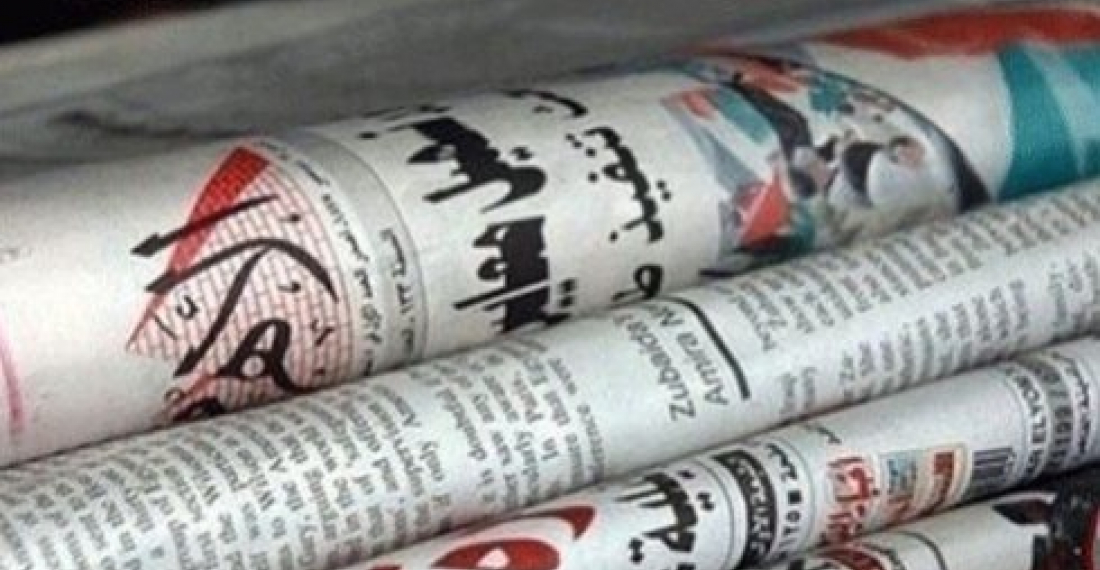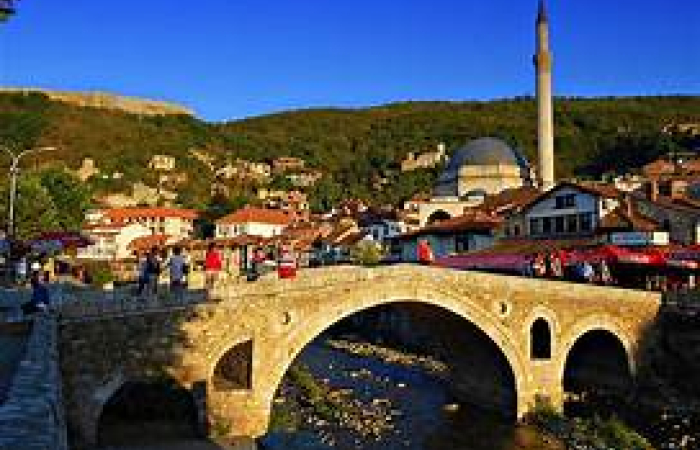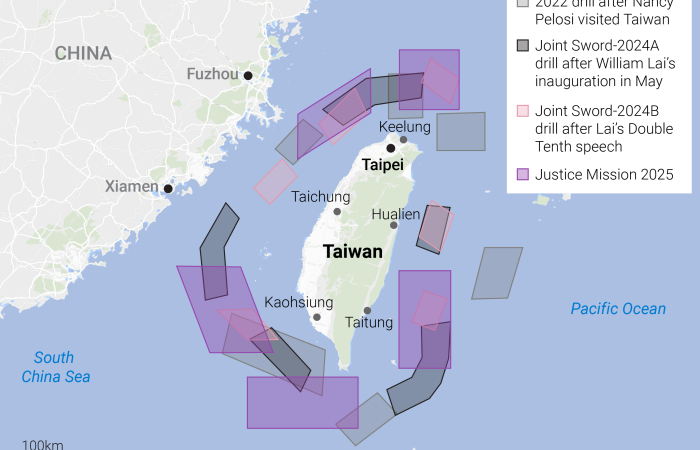Geographically the Caucasus region is close to the Middle East and is linked to it through history, ethnicity, culture, and religion. Caucasus politics and geo-strategic role has however for the last hundred years been seen as largely separate from the other ongoing processes in the Middle East. The current conflict in Nagorno-Karabakh appears to be creating a dangerous fusion with the on-going rivalries in the Middle East, which pitch Turkey, Iran, Syria, UAE, Saudi Arabia, Qatar, and others in complicated rivalries against each other.
Noman Ahmed, research assistant EU Neighbourhood South for LINKS Europe has been monitoring media in the middle east for commonspace.eu to help us understand how it has reported developments during this week of intensive fighting He shares some of his observations:
Media and social media outlets in the Middle East and North Africa, as well as Iran, Pakistan, and Afghanistan have been paying a lot of attention to the ongoing fighting in Nagorno-Karabakh. Whilst most media outlets have reported on the fighting, with some giving historical background on the Karabakh conflict and Armenian-Azerbaijani relations, three issues have received particular attention: the role of Turkey and its allies in the Middle East, and of Turkish backed Syrian militants in the fighting; support amongst ethnic Azerbaijanis in Iran for their brethren as well as of local grassroots Armenian groups in Arab world for their compatriots ; and strong pro Azerbaijani sentiments in Pakistan and Afghanistan.
Extensive Coverage of the Turkish Connection and Syrian Fighters
"Al Arabi al Youm" which is published in London with wide readership in the Middle East, on Tuesday (29 September) carried an interview with an officer of the anti-government Syrian National Army. Colonel Ziad Haji Obaid, where he is quoted as saying that they are ready to defend Turkish interests inside and outside Syrian territories. "We are working on our common interests with the Turkish army, but I do not have numbers for those who went to fight to Azerbaijan," said Obaid stressing the readiness of the armed groups to which he belongs "to defend Turkish interests, whether inside or outside Syrian territory." He was quoted as saying, "We are obliged to return the debt to the Turkish side, and to be with the Turks in one trench, whether in Libya or in Azerbaijan or anywhere else".
In an editorial on 1 October, "Al Qods al Arabi" wrote that Turkey is expected to tilt heavily towards Azerbaijan. This is because of the historical, cultural, economic and investment relations between Ankara and Baku on the one hand, as well as Turkish military support in the current conflict. In fact, Turkey could become more stubborn military if Russia comes to support Armenia even if implicitly.
The editorial says that a dangerous aspect is the portrayal of the conflict as religious conflict between Islam and Christianity, and the world today desperately needs to avoid this happening.
As such, the confrontations threaten more victims and waves of displacement and ethnic cleansing.
Also on Wednesday, the Jordanian news portal "al Bawaba" lashed out at Turkish president Erdogan. "Al Bawaba" says that the world is becoming increasingly angry at the actions of the Turkish President and his "dreams of wearing the hat of the Ottoman Sultan and summoning it from the graves, using every opportunity exploiting every situation under the pretext of the fake slogan 'We were here'."
"Al Bawaba" believes that what the Turkish president is doing has caused great concern among in various countries, because the messages of "Erdogan" reveal a person who is really fond of war.
In the same vein, the Syrian opposition website, "Enab Baladi", reported that the Syrian ambassador to Armenia announced that Syrians had been killed in the battles between Azerbaijan and Armenia. Muhammad Haj Ibrahim said that 81 Syrians "are fighting in the ranks of the Azerbaijani forces" in the ongoing battles since September 26.
Haji Ibrahim relied on the Armenian army's data, and also drew on "intelligence information and reports by human rights organizations". According to "Enab Baladi", the ambassador also accused Turkey of transferring the Syrian fighters from Northern Syria, which are areas outside the control of the Syrian regime. "Enab Baladi" said it was unable to verify the exact figures regarding the Syrian fighters.
Throughout the week Syrian media and its ambassadors overseas have spoken in favour of Armenia in the context of its conflict with Azerbaijan. On Saturday (3 Ocotber) the official, Syrian Arab News Agency SANA urged Azerbaijan and Armenia to end the conflict by peaceful means.
"The Syrian Arab Republic deeply regrets the clashes between Armenia and Azerbaijan that left victims from both sides and offers condolences to the families of the victims and wishes for a speedy recovery for the wounded," an official source at Foreign and Expatriates Ministry said in a statement Saturday.
Syria warns, the statement said, against blatant Turkish interference in this conflict, which aims to inflame situations in line with the behavior of the Turkish regime in creating tensions and stoking the flames of sedition in more than one place in the world.
"Syria calls on the Azerbaijani government to be careful not to fall into the trap of the Turkish plan and to respond to the Armenian initiatives that call for calm, dialogue and resolving the differences between them peacefully." The statement concluded.
On Thursday, 1 October, the report of Syrian fighters in Azerbaijan were boosted by a rapportage from BBC Arabic.
The report by BBC Arabic confirming the presence of Syrian fighters in the Nagorno-Karabakh conflict received extensive media attention by Middle East media outlets. "Erem News" reports about a young Syrian nicknamed "Abdullah" and his interview with BBC Arabic through a chat application.
The BBC Arabic report said that Abdullah accepted a job in Azerbaijan for $ 2,000 a month but he did not know what was waiting for him there, and he did not know that he was going to war. He said: "Last week, Saif Abu Bakr, commander of the Hamza Division of the opposition Syrian National Army, suggested that we go to Azerbaijan to guard military points on the border for a monthly fee of up to $ 2,000. There was no war at the time, and we were transferred from northern Syria to the village of Hor Kilis, and there we were stripped by members of the opposition Syrian National Army of all our money, phones and clothes, so that we would not be identified. " Abdullah added that they were transferred first to Southern Turkey and from there to a military point in on the border. He describes the chaotic start of fighting and the lack of medical care.
In the same tone, Cairo's "Sabah Arabi" reported an Armenian claim to have intercepted calls between Turkish pilots flying sorties in the conflict. A representative of the Armenian Ministry of Defence, Artsron Hovhanesyan, wrote on his Facebook page "We recorded the conversation between the pilots in Turkish". According to Hovhannisyan, Turkish Air Force's multi-functional F-16 fighters were flying over the area.
Several media sources highlighted Armenian concerns about the Turkish role. Speaking to the Doha based international media channel Al Jazeera on October 1, Armenian president Armen Sarkissian said the Turkish interference complicates the peace process and prolongs the conflict. Sarkissian says that the Turkish military interference mi\ust stop before peace talks begin. Earlier, the Egyptian newspaper "Al Wafd"reported that Sarkissian, had sent a message to Egyptian President Abdel Fattah El Sisi saying his country was for the settlement of the conflict through peaceful negotiation and inviting his Egyptian counterpart to use his connections and reputation to stop the bloodshed as quickly as possible.
Sarkissian also sent another message to Jordan's King Abdullah II, in which he similarly urged the Hashemite monarch.
Dr. Armin Mazloumian, head of the Armenian National Assembly in Egypt said, in light of President Sarkissian request to President El Sisi, that Egypt has regained its leadership in the region and its speech and stances towards global events are viewed with respect and credibility, reported "Al Masry al Youm" yesterday. Mazloumian added that the Middle East region is of great importance to Armenian foreign policy, and there are many common interests and challenges with Egypt that concern the two countries in the South Caucasus and the Middle East.
There is also speculation in Middle East media about foreign fighters on the Armenian side. The Arabic service of the Russian news outlet Sputnik quotes various media sources coverage of the story. It says Armenian President Armen Sarkissian admitted that there are foreign fighters in the ranks of the Armenian forces participating in the battles against the Azerbaijani army in the Nagorno Karabakh region, citing reports from reports "Arabi 21 News".
Sarkissian considered that the presence of Armenian foreign fighters among his forces is "normal" in the armed conflict with Azerbaijan. He said, "It is the right of any Armenian to fight alongside Armenia. There is no shame in the Armenians helping their brothers." Sarkissian added that he is in regular contact with Moscow, but the latter will not join Armenia in the battle. He also accepts Russian mediation as long as Azerbaijan halts the use of force.
Sputnik also quotes Azerbaijani president Ilham Aliyev and says that rejected the story that those fighting on the Armenian side were of Armenian origin. Aliyev said "Armenia is using people from the Middle East and even if they were Armenians and even if they are, it will not make a difference, as having a person fighting as a mercenary is something that should be dealt with at the global level.". Aliyev added that the conflict in Karabakh "must be resolved now, and Baku will not wait another thirty years."
The role of Iran in Nagorno-Karabakh
Middle East Media outlets have also been giving attention to the position of Iran in the conflict. Al Jazeera has been extensively covering the Karabakh story.
On Wednesday it quoted Mahmoud Vaezi, President Hassan Rouhani's chief of staff, who denied reports that Tehran was sending arms and military equipment to Armenia. "These are completely baseless rumours spread to tarnish good relations between Iran and Azerbaijan," he said.
The day before, several videos circulated on social media showing trucks carrying covered loads through the Iranian border with Armenia, prompting claims military equipment was being exported for use in Nagorno-Karabakh. The trucks were later reported to be empty.
#Iran state-owned TV confirms social media footage of brand new #Kamaz trucks crossing borders into #Armenia, saying the latter had bought them from #Russia.
— Riam Dalati (@Dalatrm) September 30, 2020
Iran TV, however, denies trucks were 'loaded with weapons and munitions' sent for #NagornoKarabakh conflict pic.twitter.com/FyHuh5rP7W
Vaezi said his country was willing to mediate talks over the contested Nagorno-Karabakh region, reports Al Jazeera. "The stance of the Islamic Republic on Azerbaijan has always been clear and transparent as it has always recognised the neighbouring country's territorial integrity and respected it," Vaezi, told Azerbaijani Deputy Prime Minister Shahin Mustafayev in a phone call on Wednesday. Iran's President Rouhani also spoke with Armenian Prime Minister Nikol Pashinyan and called on Armenia to work toward ending the conflict and hold dialogue.
On Thursday however, Moscow's RT Channel (in Arabic), reported that several cities in Iran witnessed pro-Azerbaijan demonstrations on Thursday against the backdrop of its sharp military escalation with the Armenian side in the disputed Karabakh region.
Azerbaijanis make up about 20% of Iran's population, numbering around 16 million, and it is the second ethnic group in the country in terms of numbers after the Persian. They mostly live in the Western part of Iran considered by many Azerbaijanis to be part of the greater Azerbaijan region.
The RT Arabic report said that protesters in the streets of Tabriz, the centre of the Iranian East Azerbaijan region, chanted slogans in the Azerbaijani language, including "Karabakh was ours and it will remain ours", "We are ready to die", "We are Baku's soldiers," and "Long live Azerbaijan".
Activists on social media posted videos showing local police forces breaking up the demonstration using tear gas.
Pro-Azeri protests in Tabriz, Iranian Azerbaijan for #Nagorno_Karabakh. They chant slogans for #azarbaijan. Iranian Azeris are the most populous minority in Iran. The iranian government, however, sides with Armenia-Russia. pic.twitter.com/JIegNueP5Z
— Aydın (@aydiniran) October 1, 2020
Pakistan and Afghanistan side with Baku in its stand-off with Yerevan
As the week progressed an increasing number of Pakistanis took to social media in support of Azerbaijan. Some viewed the war as a religious conflict.
The Pakistani foreign ministry released a clear statement supporting the Azerbaijani position, and this was warmly welcomed by president Ilham Aliyev
In the Azerbaijani town of Tovuz, close to the Armenian border Pakistani and Turkish flags were also displayed with the Azerbaijani flag
The Iranian national broadcaster "IRIB" speculated on the possible presence of foreign fighters and the connection between Pakistan and Afghanistan has with the Nagorno Karabakh region.
The newspaper speculated that since many in Afghanistan and Pakistan are looking for better living conditions and wages, a financial necessity shared with Syrians, any job seems reasonable, argues Mohamed Reda Fakhary on "IRIB". Afghanistan has a town called Qarabagh where there is widespread propaganda for the liberation of Karabakh in the Caucasus, says Fakhary. The Iranian broadcaster says, "It is noteworthy that some extremist groups in the region are seeking to shift the Nagorno-Karabakh conflict from a territorial war to a crusade to pit Islam and Christianity against each other".
Towards Peace: Voices from the Middle East
The United Arab Emirates at the moment has a problematic relationship with Turkey, but it maintains good relations with both Baku and Yerevan. A balanced position is therefore likely. This was reflected in an article on the leading national daily "Al Itihad". The Abu Dhabi newspaper carries a comment by Ammar Ali Hasan, an Egyptian writer and scholar, who says that the solution for the Nagorno-Karabakh conflict lies at the negotiation table, as the victory of one side over the other in the current war will not solve the problem, but only postpone it.
The outbreak of an armed confrontation between two countries against the background of a border conflict has become a familiar issue in the history and present of international relations, as it is one of the biggest causes of wars, says Hasan. It is also the most justified under governmental and popular perceptions, beliefs and estimates that make defending the land and those who inhabit it a matter related to national dignity and the public interest, he added.
Hasan says that the roots of the conflict are in the Soviet policy of dispersing ethnicities and fuelling the conflict between them, according to the famous English mantra: "divide and rule.". The situation remained calm until Gorbachev's perestroika when the Karabakh Soviet Council began to demand the accession of the region to Armenia. Azeri refusal led to clashes that quickly turned into a civil war. Russia stabilised the situation in 1994 and launched the Minsk Group which did not succeed in ending the conflict.
With this path and situation, this conflict is a model indicative of many cases in the whole world, where border conflicts in various regions remain unsettled which ignores the political will of their inhabitants, understanding their history and nature, and taking their interests into consideration, says Hasan.
Colonialism, the residues of empires, and the ongoing international conflict have led to the maintenance of conflicts without resolution, to become unhealed wounds, as soon as someone from the inside or outside stirs them, their blood bursts again, he added.
Hasan gives the example of the Organization of African Unity when it declared the principle of "the sanctity of borders" in an attempt to close any way to disputes between African countries who were emerging from the grip of the colonialist, but it did not prevent these disputes from turning into conflicts. As for outside Africa, and in almost all continents of the world, pockets of land and dispersals of people remained, making conflicts between states open, especially if this land is rich in resources, and the matter may expand if regional and international parties enter into the conflict, the "Al Ittihad" columnist concludes.
source: This report was compiled for commonspace.eu by Noman Ahmed, Research Associate on EU Neighbourhood South at LINKS Europe in The Hague.






